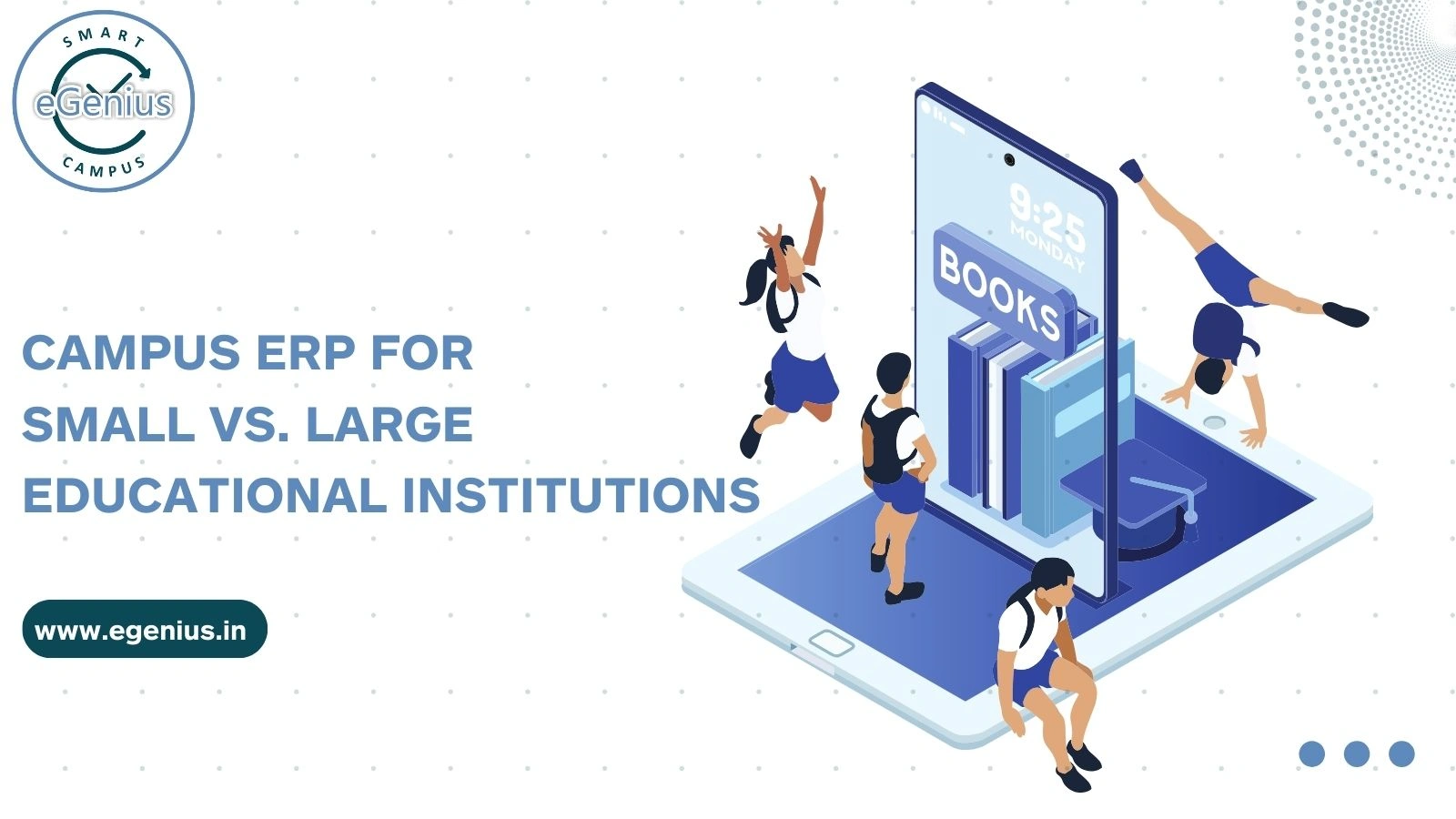In the world of education, efficient management of administrative and academic processes is critical. Campus ERP (Enterprise Resource Planning) systems have emerged as essential tools for educational institutions, enabling streamlined operations. However, the requirements for small and large institutions differ significantly. This post explores the nuances of Campus ERP for small versus large educational institutions, providing insights into their unique needs and how ERP solutions can address them.
Table of contents
- Understanding Campus ERP
- Benefits of Campus ERP
- Benefits of Campus ERP
- For Small Educational Institutions
- For Large Educational Institutions
- Challenges in Implementing Campus ERP
- In Small Institutions
- In Large Institutions
- Choosing the Right Campus ERP
Understanding Campus ERP
Campus ERP systems integrate various functions such as admissions management, attendance management, examination management, and finance into a single platform. By automating and optimizing these processes, institutions can improve efficiency, reduce errors, and enhance decision-making capabilities.
Benefits of Campus ERP
For Small Educational Institutions
Small educational institutions, including primary schools and small colleges, often operate with limited resources. Institution ERP systems can significantly benefit these institutions by:
- Reducing Administrative Burden: Automation of routine tasks like attendance tracking and fee collection frees up administrative staff to focus on more strategic activities.
- Improving Data Accuracy: Manual data entry errors are minimized, ensuring that records are accurate and up-to-date.
- Cost Efficiency: Cloud-based ERP solutions often come at a lower cost, making them accessible to smaller institutions.
For Large Educational Institutions
Large educational institutions, such as universities and large colleges, have more complex needs due to their size and the diversity of programs offered. Institution erp systems provide benefits including:
- Enhanced Scalability: ERP solutions can handle large volumes of data and users, ensuring that the system remains efficient even as the institution grows.
- Comprehensive Reporting: Advanced analytics and reporting tools help in making data-driven decisions.
- Integration Capabilities: ERP systems can integrate with other software used by the institution, providing a seamless workflow across different departments.
Challenges in Implementing Campus ERP
In Small Institutions
Small institutions might face challenges such as:
- Budget Constraints: Limited financial resources can make the initial investment in ERP systems seem daunting.
- Technical Expertise: A lack of in-house IT expertise can hinder the effective implementation and maintenance of the system.
- Change Management: Resistance to change among staff can slow down the adoption of new technologies.
In Large Institutions
For larger institutions, the challenges include:
- Complexity of Implementation: The scale and scope of implementation can be overwhelming, requiring meticulous planning and execution.
- Data Migration: Transferring vast amounts of data from legacy systems to a new ERP system can be fraught with risks.
- User Training: Ensuring that all staff and faculty are adequately trained to use the new system can be a significant undertaking.
Choosing the Right Campus ERP
When selecting a Campus ERP system, institutions should consider:
- Scalability: The system should be able to grow with the institution’s needs.
- Customization: It should offer customization options to cater to specific institutional requirements.
- Vendor Support: Strong vendor support is crucial for smooth implementation and ongoing maintenance.
- User-Friendly Interface: A user-friendly interface can facilitate easier adoption among staff and faculty.
The adoption of institution erp systems offers substantial benefits to both small and large educational institutions. While small institutions can achieve greater efficiency and cost savings, large institutions can leverage enhanced scalability and comprehensive reporting capabilities. By understanding the unique challenges and requirements of each, institutions can make informed decisions to select the right ERP solution, ultimately fostering a more streamlined and efficient educational environment.
By leveraging the power of Campus ERP, educational institutions can navigate their administrative and academic challenges with greater ease, paving the way for a more effective and engaging educational experience for students and staff alike
Ready to transform your educational institution with a Campus ERP system? Join the ranks of over 450 institutions who trust our solutions for streamlined operations and enhanced efficiency. Book a demo now to see how we can tailor our ERP system to meet your institution’s unique needs and propel you towards academic excellence!















